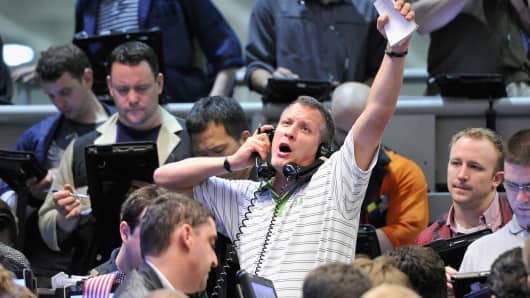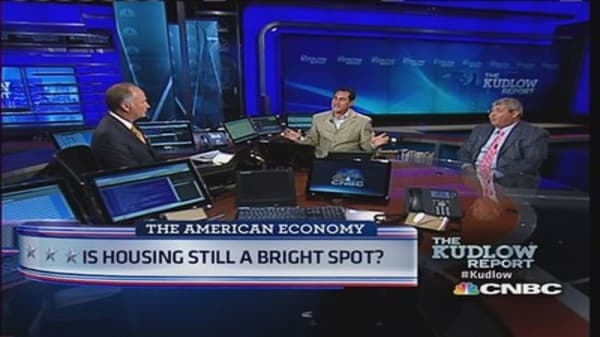(Read more: Jack Lew: Obama not negotiating over debt limit)
According to the U.S. Treasury Department, there was a record $40.8 billion of net foreign selling of Treasurys in June. That was the fifth straight month of outflows in long-term U.S. securities. China and Japan accounted for $40 billion of those net Treasury sales.
Those two nations are important because China is our largest foreign creditor ($1.27 trillion), and Japan is close with $1.08 trillion in holdings.
This shouldn't be a surprise to those who are able to accurately assess the ramifications from the Federal Reserve removing its massive bid for U.S. debt.
In truth, yields currently do not at all reflect the credit, currency or inflation risks associated with owning Treasurys.
If the Fed were not buying $45 billion each month of our government bonds, investors both foreign and domestic would require a much higher rate of return. Investors have to be concerned about the record $17 trillion government debt (107 percent of gross domestic product), which is growing $750 billion this year alone.
In addition, holders of U.S. debt must discount the inflation potential associated with a record $3.6 trillion Fed balance sheet, which is still growing at $85 billion each month. Also, foreign investors have to factor into their calculation the potential wealth-destroying effects of owning debt backed by a weakening U.S. dollar.
(Read more: Analysis: The caseagainst Fed tapering this year)
Of course, some people may claim that Japan has more debt outstanding as a percentage of its GDP than we do and yet the nation's interest rates are much lower than ours...so what's the problem?
But, unlike the U.S., Japan has a long history of deflation and only 10 percent of its debt is in foreign hands. The U.S. has not enjoyed any such history of deflation and is also a country that has only 50 percent of its debt held domestically.
Therefore, there hasn't been any real concern about foreigners abandoning the Japanese bond market because of a fear that the Yen may collapse.
But the tremendous number of foreign U.S. creditors needs to be constantly vigilant of the dollar's value. However, due to its foolish embracement of Abenomics, Japan will also have to fear a collapse of its debt market from rising inflation in the near future, just as we do here.
(Read more: Is Kuroda too 'in love' with his own policies?)
If the free market were allowed to set interest rates and not held down by the promise of endless Fed manipulation, borrowing costs would be close to 7 percent on the 10-year note. Let's face it, the only reason why anyone would loan money to the U.S. government at these levels is because of a belief that our central bank would be there to consistently push prices up and yields down after their purchases were made.
Our central bank has now adopted an entirely new paradigm.
Fed intervention used to be about small changes in the overnight interbank lending rate, which has averaged well above 5 percent for decades. However, not only has the Fed funds rate been near zero percent for the last five years, but also long term rates have been pushed lower by four iterations of quantitative easing.
The latest version is record setting, open-ended and massive in nature.
Since QE is mostly about lowering long-term rates, it shouldn't be hard to understand that its tapering would send rates soaring on the long end.
(Read more: Is Kuroda too 'in love' with his own policies?)
When the Fed stops buying Treasurys, foreign and domestic investors will do so as well. This means for a period of time there won't be anyone left to buy Treasurys unless prices first plunge.
The effects of rising rates will be profound on currencies, equity prices, real estate values and economies across the globe.
It would be wise to prepare your portfolio for a massive interest rate shock in the near future.
—Michael Pento is an economist and president of Pento Portfolio Strategies.




